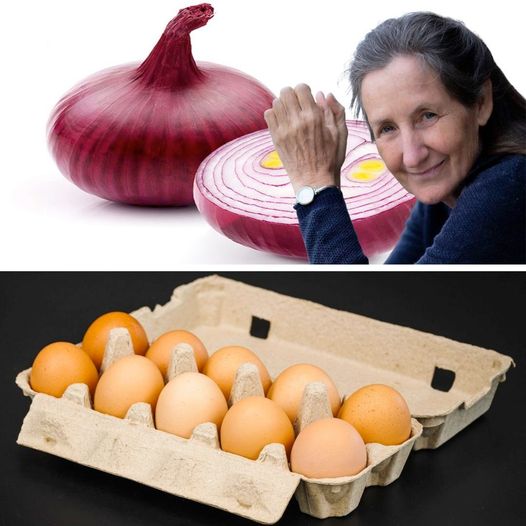Introduction

Have you ever opened your refrigerator only to find your fresh produce turned limp, tasteless, or worse—spoiled before its time? If so, you’re not alone. Millions of people make the same costly mistake every day: refrigerating foods that should never go in the fridge.
This mistake doesn’t just waste food—it drains your wallet, dulls flavors, and even reduces the nutritional value of your meals.
If you’re serious about saving money, cutting waste, and truly enjoying your food, it’s critical to know which items are better left out on the counter or in the pantry.
In this detailed guide, we’ll uncover the 7 most commonly refrigerated foods you should keep out of the fridge immediately—plus expert tips to store them properly for maximum freshness.
We’ll also answer the top questions people have about food storage, share relevant statistics on food waste, and explain why changing these simple habits can have a huge impact on your health, budget, and the environment.
Ready to stop throwing money in the trash? Read on—before you refrigerate another onion or tomato!
Table of Contents
- Why Proper Storage Matters: The Shocking Cost of Food Waste
- 7 Foods You Should Never Refrigerate
- Onions
- Potatoes
- Tomatoes
- Garlic
- Bread
- Honey
- Bananas
- Expert Tips for Storing These Foods
- Frequently Asked Questions (FAQs)
- Conclusion: Small Changes, Big Rewards
1️⃣ Why Proper Storage Matters: The Shocking Cost of Food Waste
Before we dive into the list, let’s talk numbers.
Did you know?
- Over 30% of food produced globally is wasted.
- In the U.S. alone, food waste costs over $400 billion annually.
- The average family of four wastes about $1,500 per year on discarded food.
Improper storage is one of the leading causes of this waste. Refrigerating the wrong foods accelerates spoilage, ruins taste, and often sends perfectly edible food straight to the trash.
Not only does this hurt your wallet—it also has massive environmental consequences. Food waste in landfills generates methane, a greenhouse gas over 25 times more potent than carbon dioxide.
Bottom line: If you want to save money, protect the planet, and eat better, mastering food storage is a non-negotiable skill.
2️⃣ 7 Foods You Should Never Refrigerate
🍽️ 1. Onions
Why not refrigerate?
Cold temperatures break down onion cell walls faster, making them mushy and mold-prone. Moisture in the fridge promotes sprouting and mold growth.
Proper storage:
- Store in a cool, dry, well-ventilated place.
- Keep away from potatoes (they emit moisture and gases that spoil onions faster).
Pro tip: Use a mesh bag or open basket for airflow.
🥔 2. Potatoes
Why not refrigerate?
Refrigeration turns potato starch into sugar more rapidly. This affects taste (makes them oddly sweet) and cooking quality (they brown faster when fried).
Statistics highlight:
- The USDA recommends storing potatoes at 45–50°F—warmer than most fridges.
Proper storage:
- Keep in a paper bag in a dark, cool, ventilated area.
- Avoid plastic bags—they trap moisture and promote rot.
🍅 3. Tomatoes
Why not refrigerate?
Cold temps damage the texture, turning them mealy and dulling their vibrant flavor.
Scientific insight:
- A study from the University of Florida found refrigeration suppresses genes responsible for flavor production in tomatoes.
Proper storage:
- Leave them at room temperature, stem side down.
- Use within a few days for best taste.
🧄 4. Garlic
Why not refrigerate?
Fridge humidity encourages sprouting and mold.
Proper storage:
- Store whole bulbs in a mesh bag or open basket.
- Keep in a dark, dry area with good airflow.
Storytelling tip:
Ever pulled garlic from the fridge only to find green shoots? That’s wasted money and weaker flavor. Storing it right preserves its powerful punch.
🍞 5. Bread
Why not refrigerate?
Fridge temperatures accelerate starch retrogradation—making bread stale faster.
Shocking fact:
- Bread goes stale in the fridge six times faster than at room temperature.
Proper storage:
- For short-term use, store in a breadbox or sealed bag at room temp.
- For long-term storage, freeze and thaw slices as needed.
🍯 6. Honey
Why not refrigerate?
Refrigeration causes crystallization, making honey hard and grainy.
Did you know?
- Archaeologists found 3,000-year-old honey in Egyptian tombs that was still edible.
Proper storage:
- Keep in a tightly sealed container at room temperature.
- Store away from direct sunlight.
🍌 7. Bananas
Why not refrigerate?
Cold damages the skin, turning it black. While the inside stays edible, the chilling injury slows ripening and alters texture.
Pro tip:
- Let bananas ripen at room temperature.
- To slow ripening once they’re ready, refrigerate only ripe bananas (the peel turns black, but fruit inside stays firm).
3️⃣ Expert Tips for Storing These Foods
✔️ Use breathable containers: Avoid plastic for onions, garlic, and potatoes. Mesh bags or baskets help prevent moisture buildup.
✔️ Mind the company they keep: Don’t store onions and potatoes together. The gases they emit spoil each other faster.
✔️ Freeze strategically: Bread freezes exceptionally well. Slice before freezing for easy use.
✔️ Control humidity: Store tomatoes and bananas away from direct sun but not in sealed plastic bags.
✔️ Label your food: Mark purchase dates so you use older items first.
4️⃣ Frequently Asked Questions (FAQs)
Q1. Why do people refrigerate these foods in the first place?
Mostly convenience and habit. Many think the fridge universally extends shelf life, but that’s not true for all foods.
Q2. Will refrigerating these foods harm my health?
No—eating them after refrigeration won’t make you sick. But it will degrade taste, texture, and nutritional quality.
Q3. What about storing cut onions or tomatoes?
Cut or sliced onions/tomatoes should go in the fridge in an airtight container and be used within a few days. Whole, uncut ones are better at room temperature.
Q4. Is refrigeration ever okay for bananas?
Only once fully ripe. Refrigeration will blacken the peel but slow further ripening inside.
Q5. How can I reduce overall food waste at home?
- Plan meals before shopping.
- Store foods properly.
- Use what you buy.
- Freeze extras.
Statistic to remember: Reducing household food waste by just 15% could feed 25 million Americans annually.
5️⃣ Conclusion: Small Changes, Big Rewards
Refrigerators are a modern marvel—but not everything belongs in them. By learning what not to chill, you can:
✅ Preserve better flavors
✅ Save money every month
✅ Cut food waste dramatically
✅ Support a healthier planet
Food storage is both a science and an art. When you respect your ingredients, they reward you with better taste, texture, and nutrition.
So today, take five minutes to check your fridge. Remove the onions, potatoes, tomatoes, garlic, bread, honey, and bananas if they’re in there—and store them the right way.
Your wallet, taste buds, and the planet will thank you.


